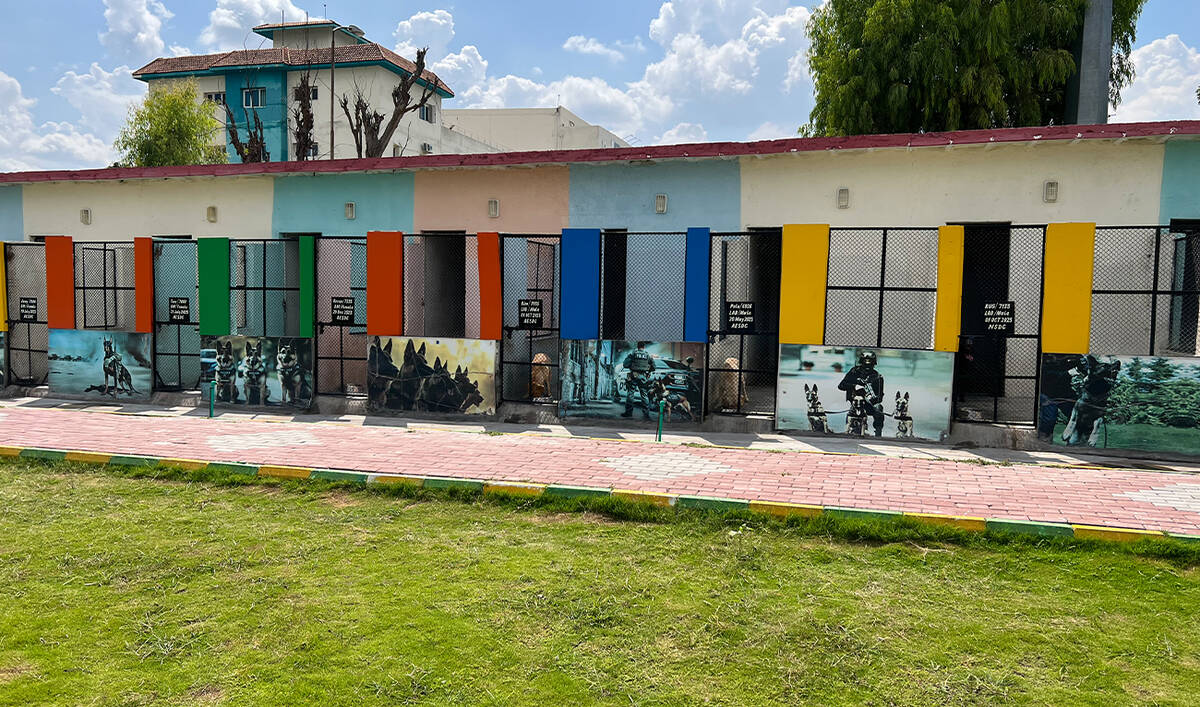ISLAMABAD: Police have arrested a man for pelting stones and throwing ÔÇ£saffron-colored paintÔÇØ at the Pakistan high commission in London, the top Pakistani diplomat in the United Kingdom (UK) said on Sunday, amid heightened tensions between Pakistan and India.
The London police have not revealed the identity of the suspect, but scores of Indian nationals last week gathered outside the Pakistani high commission in London to protest over an April 22 attack in Indian-administered Kashmir that killed 26 tourists.
New Delhi accused Pakistan of orchestrating the attack in the Pahalgam resort town. Islamabad has denied involvement and says it is ready to take part in a credible and transparent investigation into the attack.
ÔÇ£This morning [Apr. 27], at around 4-4:30am, a man came here and pelted stones [at the Pakistani high commission]. These are white stones, which are quite big and are not found here. He brought it from somewhere else. He had a bag and he [threw] this saffron-colored paint, this is like a paint, which you can see, this hit our logo and wall, and several [window] glasses were broken,ÔÇØ PakistanÔÇÖs High Commissioner Mohammad Faisal said.
ÔÇ£Police came and arrested that man. Now that man is in police custody, they are not telling us his nationality and identification details.ÔÇØ
In India, saffron is considered a sacred color, primarily associated with Hinduism, and is prominently featured in the national flag, where it represents strength and courage. A number of protesters, who gathered outside the Pakistan high commission, were seen wearing saffron-colored clothes.
On Sunday, PakistanÔÇÖs information minister, Attaullah Tarar, also accused Indian authorities of encouraging Indian nationals to ÔÇ£attackÔÇØ PakistanÔÇÖs missions abroad, which he said was ÔÇ£unfortunate.ÔÇØ New Delhi did not immediately responded to TararÔÇÖs statement.
High Commissioner Faisal said they had taken up the matter with BritainÔÇÖs Foreign Office.
ÔÇ£This is a very big cause of concern for us as our security is at stake because, you know, our officials live on this street a little far from here,ÔÇØ he said.
ÔÇ£We will urge the British government to take action on this and punish the perpetrator behind this.ÔÇØ
Pakistan and India have fought multiple wars, including two on Kashmir, since their independence from British rule in 1947. Both neighbors rule part of the Himalayan territory but claim it in full.
New Delhi accuses Pakistan of supporting armed separatist militants in the Kashmir. Islamabad denies the allegations and says it supports the Kashmiri people diplomatically and politically.
The Pahalgam attack marks a dramatic shift in separatist assaults in Indian-administered Kashmir, which typically target Indian security forces.
In 2019, a suicide attack killed 41 Indian troops in Kashmir and triggered Indian air strikes inside Pakistan, bringing the countries to the brink of all-out war.






















